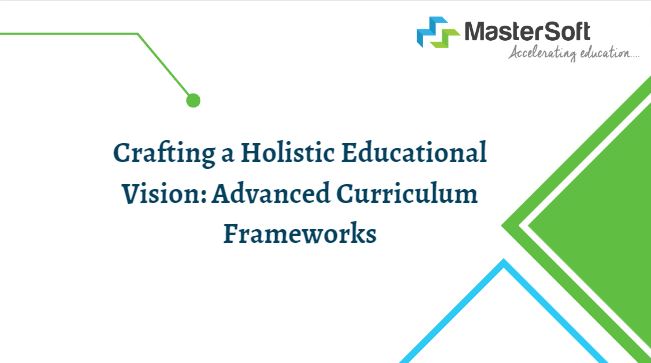
The traditional educational curriculum no longer caters to the fast-moving development of individuals. It demands something more than just an academically focused approach. Learners today need a more comprehensive educational experience that prepares them not only academically but also develops them so they may tackle and overcome the different complexities of today’s competitive world. This is where Holistics Educational Vision steps in.
What is Holistic Education?
Holistic Education is the concept of nurturing more than the intellectual growth of an individual. The concept also focuses on the learner’s Social, Emotional, and Ethical development. The approach recognises that education and growth are not limited to classrooms, books, and lectures but in almost every aspect of day-to-day life.
In a nutshell, “Holistic Education is the concept of nurturing the Intellectual, Social, Ethical, and Emotional development of every learner while removing the boundaries of classes, books, etc., and learning from every aspect of life”.
This is not a recent innovation. For ages, Philosophers and Educators have supported such an education system that recognises the diverse talent and potential of all learners. However, putting this philosophy into practice requires a comprehensive and well-designed curriculum framework.
Holistic Education and Curriculum Framework
A proper and well-defined curriculum framework plays a crucial role in incorporating Holistic Education. It serves as the blueprint of learning.
An effective and advanced curriculum framework goes beyond the traditional subject-based or discipline-based approach and incorporates a multidisciplinary perspective. It outlines the teaching methodologies, learning objectives, content, and assessment strategies for each subject area. It also focuses on and integrates various forms of knowledge, such as academic, practical, experiential, cultural, ethical, and spiritual.
The key idea when developing an advanced curriculum framework is that it should foster higher-order thinking skills, such as creativity, critical thinking, problem-solving, and metacognition. It should promote lifelong learning by encouraging learners to be curious, innovative, self-directed, and collaborative.
Advantages of Holistic Education over Traditional Education
Holistic Education is an approach to learning that emphasises on development of a person’s every aspect. Traditional Education, on the other hand, zeros in on acquiring knowledge and skills in a specific domain with a predefined common roadmap, neglecting the diversity in learners and the connections between them and the broader context of life.
Holistic Education holds an advantage over Traditional Education in the following ways:
- Holistic Education fosters creativity, curiosity, and critical thinking by encouraging learners to explore their interests and passions, establishing a connection across disciplines and experiences.
- It nurtures emotional intelligence, self-awareness, and resilience by providing opportunities for reflection, dialogue, and feedback, and by creating a supportive and respectful learning environment.
- Exposing learners to diverse perspectives and cultures promotes social responsibility, global citizenship, and ethical values. Collaborative projects and community service further enhance this learning.
- It supports physical health and well-being by integrating movement, nutrition, and mindfulness into the curriculum, and by emphasising the importance of balance and harmony in life.
Holistic Education is not a one-size-fits-all model. It’s more of a flexible and adaptable framework that is curated as per the requirements and context. The ultimate aim is to prepare learners for the challenges and opportunities of the 21st Century. This was brought into reality by the National Curriculum Framework (NCF) 2020.
Holistic Education Vision in India: NCF 2020 Curriculum Framework
National Curriculum Framework 2020 (NCF 2020) is a mandate document released in 2020 jointly by the Ministry of Education (MoE) and the National Council of Educational Research and Training (NCERT).
NCF 2020 aims to improve education by focusing on the overall development of children. This approach prioritises nurturing children’s cognitive, emotional, and social abilities to help them navigate the challenges of the modern world. The goal is to foster well-rounded individuals who have the necessary skills and knowledge to succeed.
A total of four National Curriculum Frameworks were devised by National Education Policy 2020 (NEP 2020) after a comprehensive strategy worked out by the Ministry of Education (MoE) and the National Council of Educational Research and Training (NCERT)., to nurture the learners from an early age and develop their intellectual, social, cognitive, and emotional development.
- National Curriculum Framework for Early Childhood Care and Education (NCFE CCEṣ)
- National Curriculum Framework for School Education (NCFSE)
- National Curriculum Framework for Teacher Education (NCFTE)
- National Curriculum Framework for Adult Education (NCFAE)
Benefits of NCF 2020
The NCF 2020 offers numerous advantages, including:
- It promotes learner-centric and competency-based education, which focuses on developing the skills, knowledge, and attitudes of the students rather than rote memorization of facts.
- It encourages experiential learning, which involves hands-on activities, projects, field trips, internships, and other forms of learning by doing.
- It fosters holistic development, which encompasses the physical, mental, emotional, social, and spiritual aspects of the learners.
- NCF 2020 integrates curricular and co-curricular areas, which include arts, sports, health, life skills, values, and citizenship education.
- It respects diversity and inclusion, which means that it caters to the needs and interests of learners from different backgrounds, abilities, languages, and cultures.
- It supports continuous and comprehensive evaluation, which involves regular and systematic assessment of the learners’ progress and feedback for improvement.
Conclusion,
The traditional academic approach is not enough for the changing educational landscape. A holistic approach to education, which supports the intellectual, social, moral, and emotional development of learners, has many benefits. It enhances creativity, emotional intelligence, and social responsibility, producing well-rounded individuals.
The National Curriculum Framework (NCF) 2020 in India is a commendable initiative in this regard. It aims at the comprehensive development of children and promotes competency-based learning, experiential education, diversity, and inclusion. This change enables learners to acquire essential skills and values for succeeding in the challenging and ever-evolving world.
Holistic Education, as embodied by NCF 2020, is the key to preparing individuals not only academically but for life’s challenges.


